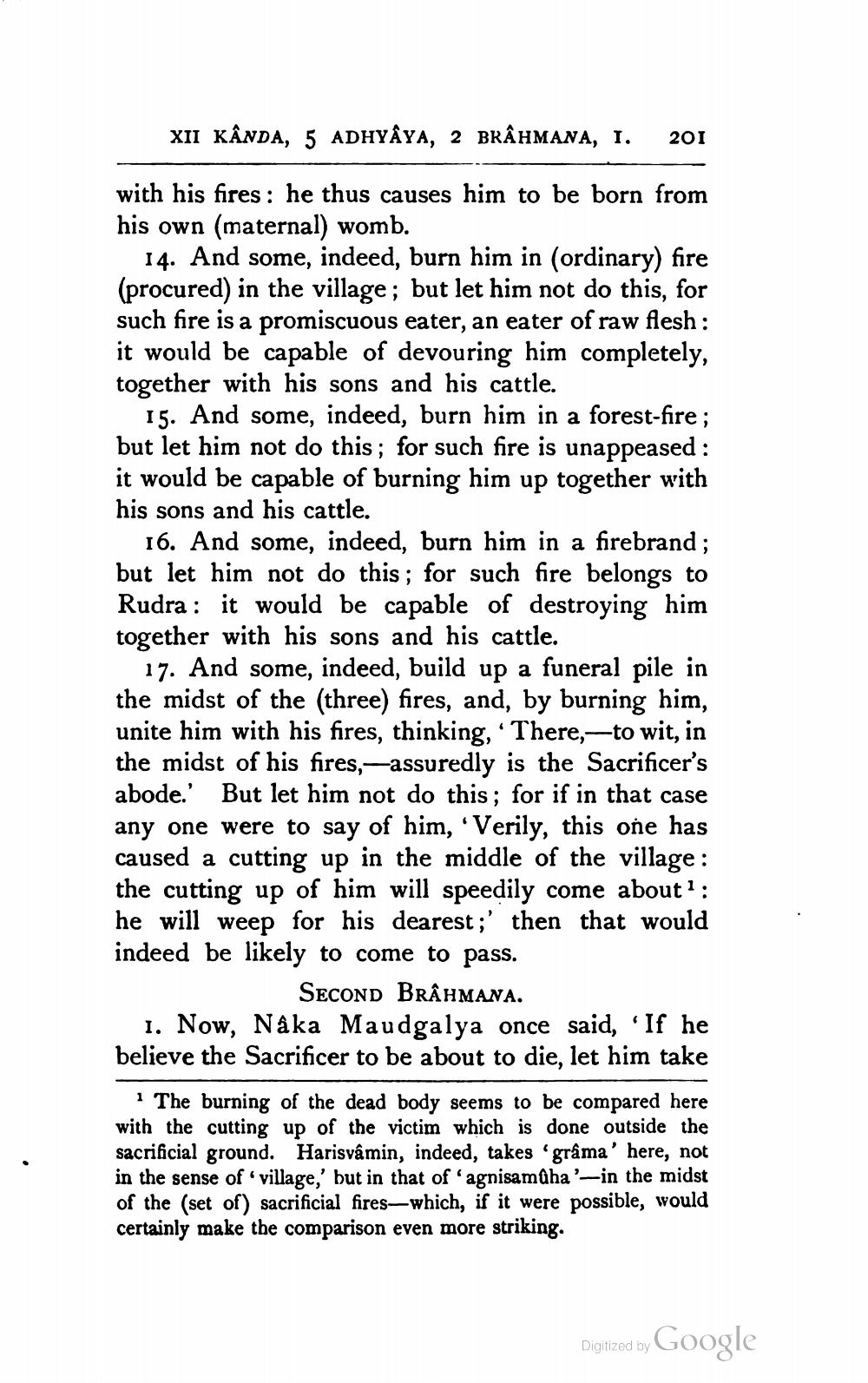________________
XII KÂNDA, 5 ADHYÂYA, 2 BRÂHMANA, I.
201
with his fires : he thus causes him to be born from his own (maternal) womb.
14. And some, indeed, burn him in (ordinary) fire (procured) in the village; but let him not do this, for such fire is a promiscuous eater, an eater of raw flesh: it would be capable of devouring him completely, together with his sons and his cattle.
15. And some, indeed, burn him in a forest-fire; but let him not do this; for such fire is unappeased : it would be capable of burning him up together with his sons and his cattle.
16. And some, indeed, burn him in a firebrand; but let him not do this; for such fire belongs to Rudra : it would be capable of destroying him together with his sons and his cattle.
17. And some, indeed, build up a funeral pile in the midst of the (three) fires, and, by burning him, unite him with his fires, thinking, 'There,—to wit, in the midst of his fires,-assuredly is the Sacrificer's abode.' But let him not do this; for if in that case any one were to say of him, 'Verily, this one has caused a cutting up in the middle of the village : the cutting up of him will speedily come about 1 : he will weep for his dearest;' then that would indeed be likely to come to pass.
SECOND BRAHMANA. 1. Now, Naka Maudgalya once said, 'If he believe the Sacrificer to be about to die, let him take
1 The burning of the dead body seems to be compared here with the cutting up of the victim which is done outside the sacrificial ground. Harisvamin, indeed, takes 'grama' here, not in the sense of village,' but in that of agnisamgha'-in the midst of the set of sacrificial fires- which, if it were possible, would certainly make the comparison even more striking.
Digitized by Google




